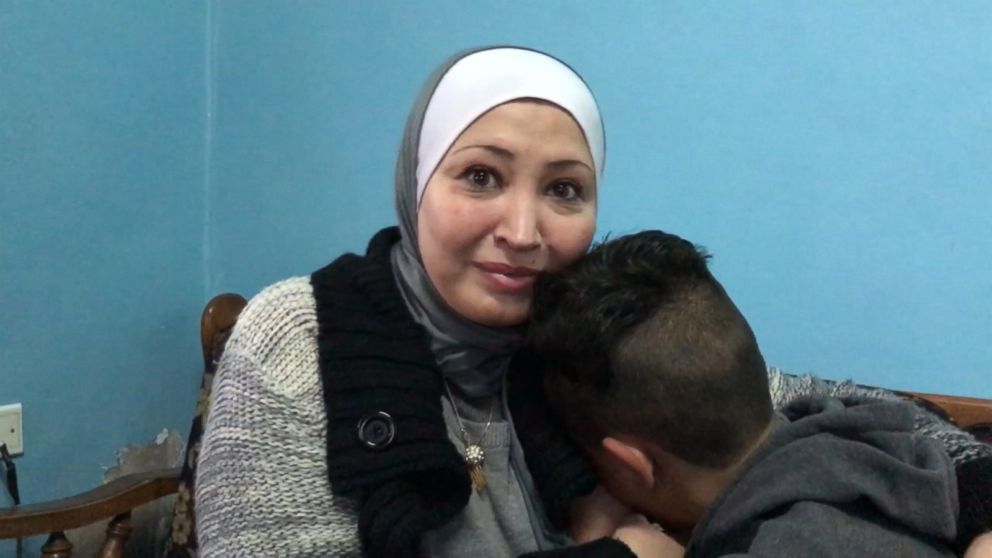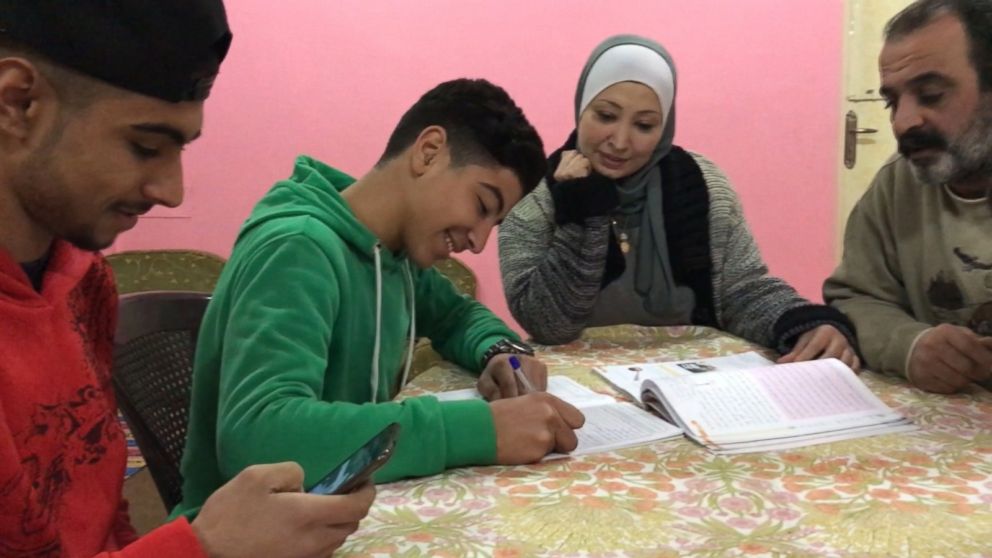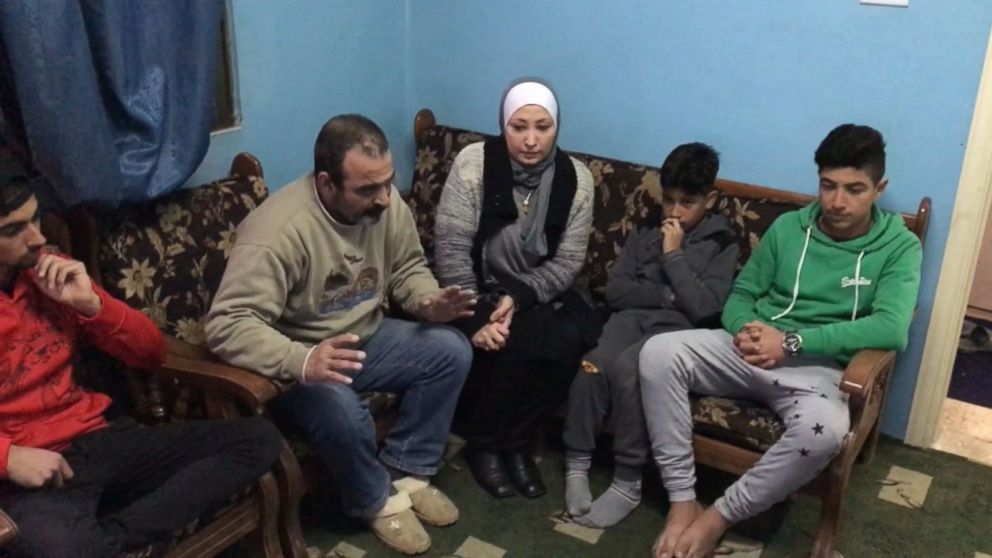'We Are Muslims, Not Terrorists': Syrian Family Stranded in Jordan After Trump Order
The family's hopes to start a new life in the U.S. are on hold.

AMMAN, JORDAN -- Afnan has been praying for a way out of Jordan since the day she arrived.
"I left Syria fearing for my children and my husband," the 35-year-old mother of three boys told ABC News. "There was no security or stability. Lots of clashes were taking place so we were scared and left."
Afnan said her family fled Damascus in 2012 when her children, Abed al Razaq, Firas and Baibars, were just 12, 10 and 4 years old respectively. They settled in Amman, the capital of Jordan, temporarily, hoping to eventually start new lives in the United States.
Afnan said she was expecting a phone call any day and a one-way ticket to Little Rock, Arkansas, where her family had been assigned for resettlement. But that was before President Donald Trump signed an executive order last Friday halting the resettlement process for all Syrian refugees indefinitely.
"We were expecting to go and find safety and security and humanitarianism. We even work in the field of psychological support and humanitarianism," Afnan said. "But we were not expecting this."
A sports coach in Amman, Afnan mentors young girls at Reclaim Childhood, a nonprofit organization that uses sports as "a vehicle of empowerment for refugee girls and local women in Jordan," according to its site.
"America needs people like Afnan," Maddie Ulanow, Afnan's boss and the program director for Reclaim Childhood, told ABC News. "It's not just policy, it's ruining people's lives."

Afnan's case came to the attention of ABC News via Reclaim Childhood, where one of the authors of this article sits on the board of directors.
Since October, Afnan has been poring over the Wikipedia page for Little Rock, which she'd never heard of before, Ulanow said. Her sons, committed athletes like their mother, had already researched soccer clubs in the city before news of Trump's order broke.
"Regrettably, I expected more than this," Afnan's husband, Mazin, 51, told ABC News. "I expected safety for my children, a safe country, a future for my children."
After registering with the United Nations High Commissioner for Refugees (UNHCR) upon arrival in Jordan, it took two years for the agency to approach Afnan and Mazin with the opportunity to begin the process of resettlement to the U.S.
Refugees cannot apply for resettlement, and once they're chosen, they have no say in their final destination. The UNHCR chooses the most vulnerable refugees for resettlement, and according to U.N. data, less than 1 percent of the world's refugees are ever resettled in a new country. In the first 11 months of 2016, the UNHCR referred 145,500 cases to about 30 different countries, and 115,000 refugees were resettled, 84,995 in the U.S.
After the rigorous, two-year screening process, the International Organization for Migration (IOM) gave Afnan a three-month window to expect final travel plans between December 2016 and February 2017. But those plans have been put on hold in the wake of Trump's order.
"President Trump has the wrong perception of Arabs. ... You want to fight terrorism? Go ahead and fight terrorism but don’t fight the entire Arab world," Mazin said. "We are trying to escape war."
The UNHCR says each applicant to the U.S. undergoes at least five separate background checks, four biometric security checks, three separate in-person interviews and two interagency security checks. There are additional screenings for Syrians.
Afnan, Mazin and their three boys made it through all of these checks, only to be stalled now.
"We are Muslims, not terrorists ... terrorism doesn’t have a religion," Afnan said. Even if her family does eventually make it to the U.S., she said she's worried about whether they may face discrimination given the current environment.

Before fleeing Damascus, Mazin worked for a printing company, and in Amman, he has found work as a carpenter. On Tuesday, in the family's living room, he reassured his sons. Baibars, now 9, started crying.
"We’re moving you from country to another country, a great country, so that you can be in safety, security and stability," he told Baibars. "God willing, our faith in God is great, that we can be together in peace."
"Are you afraid?" Afnan asked Baibars. "What are you afraid of?"
Baibars sobbed into his mother's shoulder. "I'm afraid," he said.
"We are all afraid without stability," Afnan answered, as Baibars got up and locked himself in his bedroom. "He’s afraid, one day we’re traveling, one day we’re not. Even a child is affected. The word ‘refugee’ is difficult for him."
"We are children," his older brother Firas, now 15, added. "They might see us as terrorists, but we are children, we haven’t done anything. ... We are coming for education, not to fight or wage jihad on America."
Abed al Razaq, now 17, wants "to tell the American people that they are a good people to stand with us, to march for us," he said.
"The American people are humanitarians," Mazin added, expressing hope the ban will be short-lived. "We like them, we’ve seen them on TV, we’ve seen their marches.
"Their love for us, their welcome for us, their passion for us, for our children, these are the things that make us love America, make us want to go to America."
Lena Masri and Lora Moftah contributed translation.

